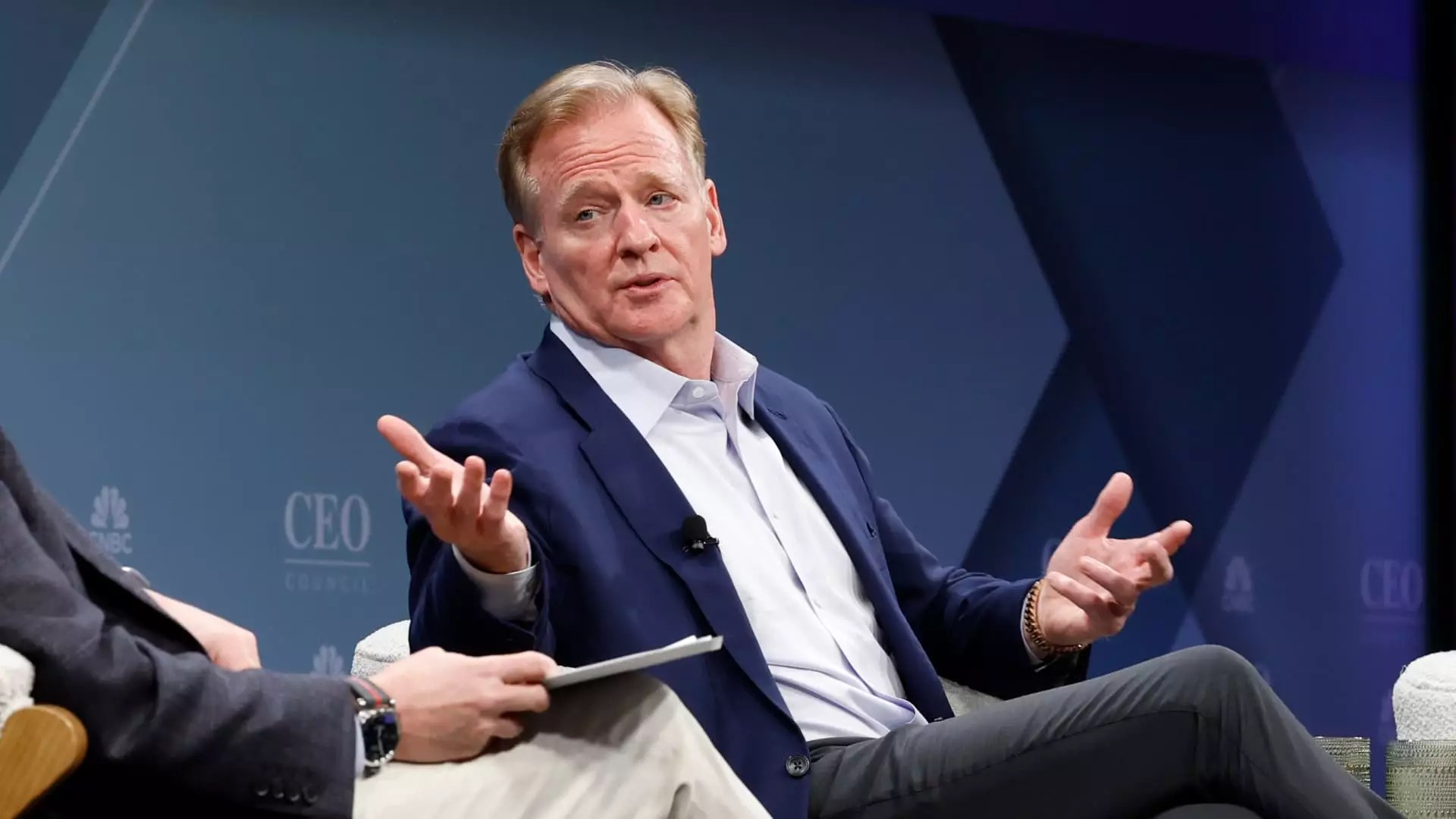The NFL has officially set its sights on global expansion, a noteworthy pivot that underscores both the league’s ambition and the immense market potential beyond the American border. In a recent announcement, Commissioner Roger Goodell revealed plans for the NFL to host up to 16 games per season internationally over the next five years. This remarkable move indicates a desire not just to grow the fanbase but to capitalize on the burgeoning sports market that exists outside the typical confines of U.S. viewership.
Traditionally, American football has been a domestic pastime, revered largely within the United States. However, as Goodell proclaimed, “International is an open market for us.” With over 200 million fans domestically, the league is keenly aware that it can tap into an extensive and largely uncharted audience abroad. The NFL’s plan to host games in countries such as Brazil, Germany, and Spain illustrates a serious commitment to embracing new markets, allowing fans worldwide to partake in the spectacle of American football.
The Economic Upsurge in Sports Travel
In addition to Goodell’s projections, Marriott CEO Anthony Capuano provided insight into the financial infrastructure supporting this international strategy. Sports travel, according to Capuano, is a massive revenue generator, accounting for over $50 billion annually and constituting 10% of global tourism. The partnership between Marriott and the NFL emphasizes the economic symbiosis that can emerge from international games. As fans travel to watch their favorite teams, they stimulate local economies, creating a win-win situation for both the league and host nations.
The implications of this kind of growth are staggering. Increased international games mean heightened hotel bookings, restaurant traffic, and tourism-related revenues in the cities that host these games. As a self-proclaimed lover of capitalism, it’s refreshing to see a sports league take such bold steps to harmonize profit generation with enhanced entertainment value, nourishing both its business interests and the economy of the communities it affects.
Private Equity: A Double-Edged Sword
Roger Goodell’s discussion at the CNBC CEO Council Summit also touched upon the league’s new openness to private equity investments—a move I find both fascinating and concerning. The NFL has signaled its willingness to allow private equity firms to acquire stakes in teams, a decision that has raised eyebrows among traditionalists who fear the loss of communal ownership and the spirit of the game. Is the NFL chasing dollars over its fans? This move to accept private equity investments, while lucrative, could dilute the essence of American football, transforming it from a community-centric identity into another financial asset ripe for corporate exploitation.
Nonetheless, the potential for cash infusion is enormous. With franchises like the San Francisco 49ers securing astonishing valuations that hover above $8.5 billion, it’s evident that the business model is working for the league. The average franchise worth of $6.49 billion underlines an economic landscape where the NFL reigns supreme as the most valuable sports league in the U.S. The superficial allure of wealth must be balanced with the responsibility of upholding a sport that millions across America treasure.
Weathering Economic Storms
In the face of global economic challenges such as inflation and dwindling consumer sentiment, Goodell remains optimistic. He asserted that the current economic climate would have a negligible impact on the league’s popularity. There’s a curious juxtaposition in the league’s resilience against broader economic adversities—a testament to the enduring love for football in American culture. This unwavering fascination illustrates that no matter the economic hurdles, consumers find worth in the NFL’s content, signaling a deeply ingrained cultural affinity.
However, the question remains: at what point does love for the sport intersect dangerously with economic greed? With such robust demand, will decisions prioritize profits over preserving the integrity that makes football uniquely American? It’s a notion worth pondering as the NFL embarks on this ambitious journey towards international expansion and a more corporately influenced future.


Leave a Reply